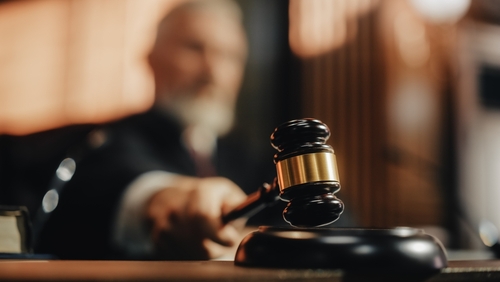U.S. District Court Judge Tanya Chutkan has granted Eric Peterson, a Missouri resident linked to the January 6 Capitol events, extended travel rights. This decision allows Peterson, who pleaded guilty, to move freely around Kansas City while on bond, illustrating the complex balance between judicial constraints and personal obligations.
An Insight into Judicial Flexibility
Judge Tanya Chutkan’s recent decision exposes the nuanced approach the judicial system can take. Allowing Eric Peterson extended travel rights acknowledges the intersecting needs of legal accountability and personal life. Peterson, who must attend President-elect Donald Trump’s inauguration, benefits from this flexibility. Beyond personal agency, this decision reflects how courts can maintain fairness in highly publicized cases, ensuring justice without over-imposing on individual lifestyles.
Peterson’s sentencing date is set for January 27. He will pay $500 in restitution to the Architect of the Capitol. Discussions around potential pardons have gained attention, with Peterson’s lawyer, Michael Bullotta, expressing hope due to former President Trump’s indications about pardoning January 6 rioters. Bullotta emphasized this expectation as President Trump transitions back into office.
Federal prosecutors Wednesday urged a federal judge to reject a request from a defendant convicted for participation in the Jan. 6 attack on the Capitol to attend President-elect Donald Trump's inauguration next month, according to a court filing. https://t.co/yrvude6h9S
— ABC News Politics (@ABCPolitics) December 18, 2024
Contrasting Judgments and Legal Arguments
In stark contrast, Federal prosecutors push to deny similar travel requests for others involved in the Capitol incidents. Cindy Young, another defendant, sought attendance at Trump’s inauguration but faced opposition. Convicted of multiple misdemeanors, she poses concerns according to prosecutors who cited safety risks she could bring to officials present at the event. They argue Young mocked officers and pushed for retribution, thus posing an ongoing threat within D.C.
A Missouri man who pleaded guilty to entering the US Capitol on January 6, 2021, will be allowed to attend President-elect Donald Trump’s inauguration next month, a federal judge ordered Thursday. https://t.co/8m3kv2dRGL
— ABC 17 News (@ABC17News) December 20, 2024
The DOJ outlines the dangers Young and Russell Taylor, another defendant, present if permitted to re-enter Washington. Despite these denials, the DOJ has approved travel for other defendants, barring trips to the capital. This inconsistency underlines the cautious evaluations undertaken by the courts when assessing travel petitions in such sensitive contexts.
Navigating the Whirlwind of National Narratives
As anticipation builds around potential pardons, uncertainty looms around who President Trump might choose to pardon. This ambiguity hangs over many defendants involved in the January 6 events, as lawyers strategize around these possibilities. The courts find themselves delicately balancing between legal precedence and the broader political dialogues surrounding the Capitol incident cases.
Judge Chutkan’s decision for Eric Peterson illustrates the judicial system’s capacity to prioritize pragmatic, human-centered judgments without compromising on responsibility. Amid varying outcomes in parallel cases, these decisions underscore the complex interplay between maintaining judicial integrity and acknowledging individual life needs against the backdrop of major national events.
Sources:
- Federal judge allows Jan. 6 defendant to attend Trump inauguration | Just The News
- DOJ urges judge to deny Jan. 6 defendant’s request to attend Trump inauguration – ABC News
- DOJ seeks to block Jan 6 defendants from attending Trump inauguration | Fox News
- DOJ opposes Jan. 6 defendant’s bid to attend Trump’s inauguration – Live Updates – POLITICO

